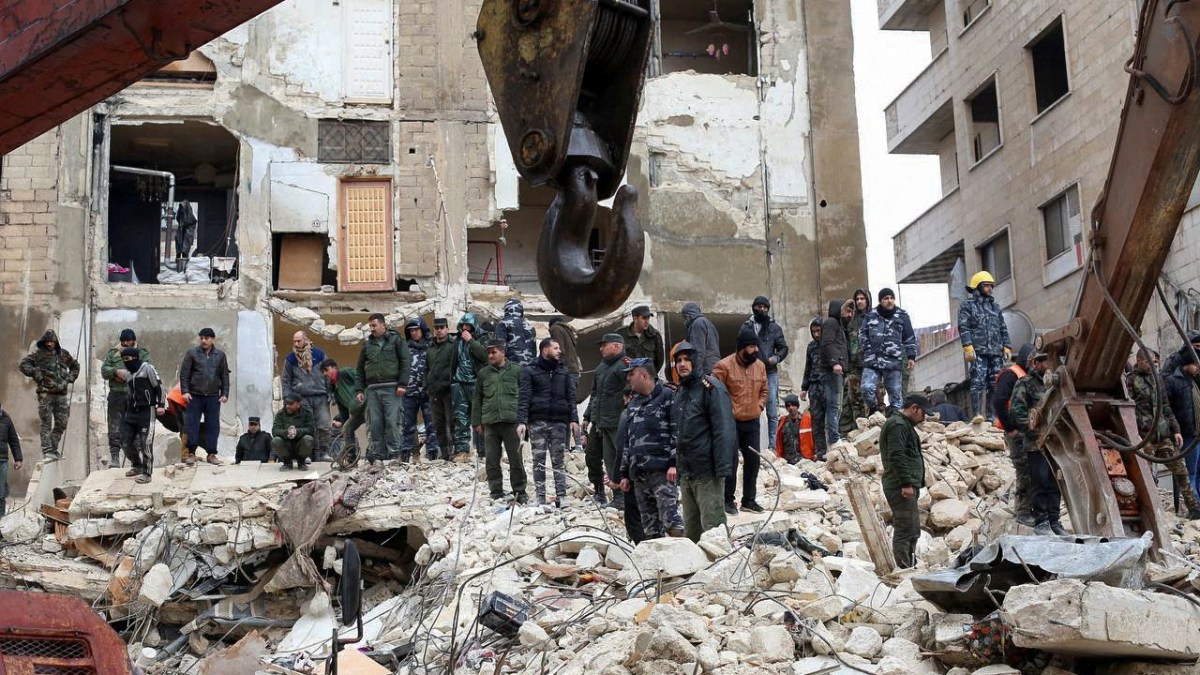The United Nations announced, on Tuesday, that the transfer of aid from Turkey to the areas under the control of the opposition factions in Syria through the Bab al-Hawa crossing, the only permitted crossing point, was affected by the earthquake that struck the two countries.
"The cross-border operation itself has been affected," said Jens Larke, a spokesman for the United Nations Office for the Coordination of Humanitarian Affairs (OCHA), at a press conference in Geneva.
Stephane Dujarric, a spokesman for UN Secretary-General Antonio Guterres, said the Bab al-Hawa crossing itself was not damaged.
"We continue to use the Bab al-Hawa crossing because, in fact, the transshipment platform is intact," Dujarric added.
"However, the road leading to the crossing has been damaged, which temporarily affects our ability to fully use the crossing," he added.
Larky said the earthquake destroyed roads in Turkey and affected local and international UN staff and their partners, as well as truck drivers transporting aid.
"They are looking for their families under the rubble. So we were affected as well," he said. "This had a direct impact on the cross-border operation."
"We will use all available means to reach the population, including the operation across the borders and across the front lines from inside Syria," he stressed.
He explained that "the cross-border humanitarian aid fund, which is the main tool for providing aid in northwestern Syria, is currently empty," calling for its urgent renewal.
The earthquake that struck Turkey and Syria, on Monday, doubles the challenge faced by humanitarian organizations to help the Syrian people, especially in Idlib, which is controlled by opposition factions in the northwest of the country.
The bulk of the humanitarian aid allocated to the northwest of the country is transported from Turkey through the Bab al-Hawa crossing, the only crossing point guaranteed by the UN Security Council resolution.
The United Nations has repeatedly stressed in recent years that the transfer of aid across the front lines - which requires the approval of the Syrian regime - is not sufficient to meet the needs of the population in northwestern Syria.
"The humanitarian duty to save lives in all available ways and channels is now overwhelming," Larkie said.
He continued, "It is necessary for everyone to see this situation for what it is, a humanitarian crisis in which people's lives are at stake. Please do not politicize the matter."

